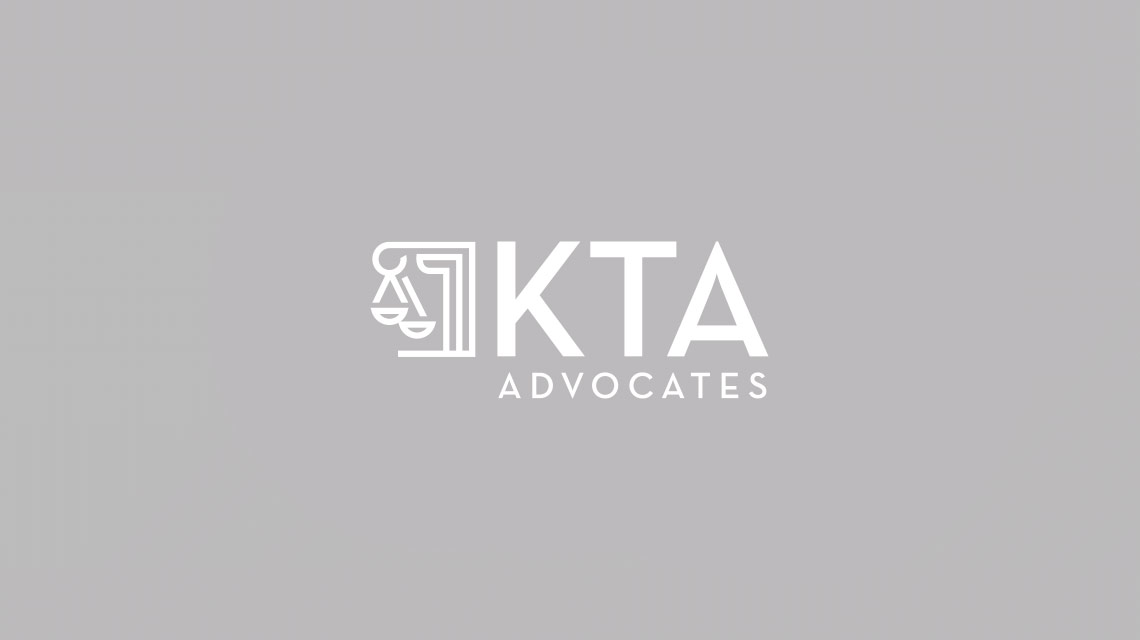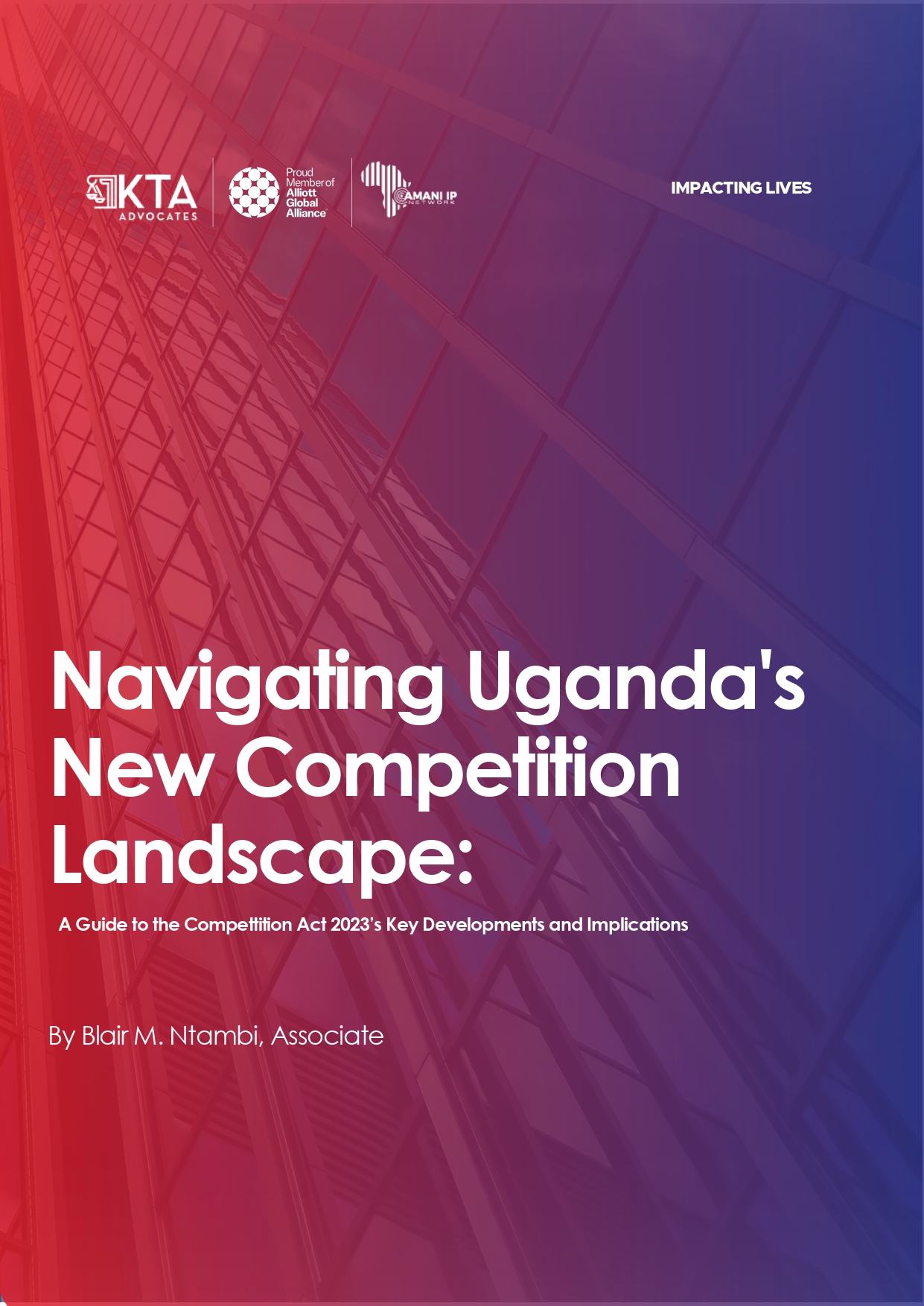Paper Presented at Cryptocurrency and Blockchain Policy making Workshop, July 4th – July 5th 2018, Kampala
Kenneth Muhangi
LLB Hons (UCU) LLM (Wales) Dip Lp. LDC
Partner- Technology, Media, Telecommunications, Intellectual Property
KTA Advocates
www.ktaadvocates.com
A CASE FOR REGULATING BLOCKCHAIN & CRYPTOCURRENCY IN UGANDA
On Tuesday February 14th, 2017, Bank of Uganda, issued a press release that was circulated in the media, warning the general public about “One coin Digital Money’ operations in Uganda.
The statement by the Governor, warned that One Coin’s dealings in Cryptocurrency like Bitcoin, falls outside the regulatory Purview of the Central Bank.
Since the press release, the interest in Blockchain & Cryptocurrency has tripled. Although Uganda does not regulate Blockchain & cryptos, the general consensus is that regulators (like the Central Bank) need to clarify the place for Cryptocurrency and Blockchain in Uganda’s emerging Fin-tech economy.
This need is ever-so amplified, by the necessity to carefully reconcile Uganda’s laws on foreign currency with the Central Bank’s need to safeguard the stability and integrity of the financial sector.
WHAT IS BLOCKCHAIN?
A Blockchain is a continuously growing list of records, called blocks, which are linked and secured using cryptography. By design, Blockchains are inherently resistant to modification of the data. Once recorded, the data in any given block cannot be altered retroactively without the alteration of all subsequent blocks, which requires collusion of the network majority.
WHY USE BLOCKCHAIN?
Blockchain is currently viewed as the future of commerce due to the myriad of benefits it offers. In property and real estate for example, Blockchain has the potential to greatly reduce property fraud at a time when this has become a growing concern for Uganda’s land registry.
This is premised on the nature of the technology that does not allow alteration of records once entered and it requires collusion from all network users.
Blockchain offers a unique code for each property and this code is linked to a smart key which is only held by the owner. Transfer of the property would then require surrender of the smart key by the owner and without it, a transfer of property cannot be effected.
The use of Blockchain to record property transactions could also produce more effective property management as information could be reviewed in real time with less on-going management time required.
Blockchain technology also underpins ‘smart contracts’ , which are programmable contracts that self-execute when certain conditions are met, and offer the possibility that transactions could complete much more quickly when combined with a Blockchain registry.
For instance, title to the property could be transferred to the purchaser automatically on receipt of funds into the vendor’s account. The result would also be to speed up the registration process. With the ledger updating immediately, the registration gap would be eliminated. This, in turn, would also lead to greater efficiencies and cost savings for land registries.
Countries have long considered, explored and implemented Blockchain technology in their land registries. States like Ukraine, Georgia, Sweden and Ghana are actively exploring Blockchain based land registries.
CRYPTOCURRENCY
Cryptocurrency on the other hand, is electronic currency that allows transactions to be performed without banks or any other middlemen. Despite some risks, it is a very interesting and dynamic technology that may change how eCommerce will be conducted in the future.
When it comes to eCommerce, cryptocurrencies like bitcoins are a secure payment mode. They can be used to securely purchase items or transfer money across borders quicker and more efficiently.
Online Stores like Expedia, Microsoft & Virgin Galactic have embraced Bitcoin as a form of digital currency . Recently, Bitpesa in Kenya, announced a B2B service that allows business owners in Tanzania, Kenya, Uganda & Nigeria to send and receive payments within and outside Africa . Bitpesa has since had a falling out with Safaricom, that declined to host the Bitpesa, Bitcoin service on their platform.
But, although Bitcoin may be an asset to eCommerce, it can also be (and has been) seen as a liability. Because Bitcoin does not reside in any given regulation, people can operate the network anonymously. This provides opportunities for criminal activities, including tax-evasion, terrorist financing and money-laundering.
Bitcoin exchanges/websites are also susceptible to hacking as was seen in February 2014, when Mt. Gox (Japan), which was once the world’s largest exchange for Bitcoin, filed for bankruptcy protection after reporting that 850,000 bitcoins, worth $450 million at the time, had disappeared or been stolen by hackers.
REGULATORY POSITION
Although it’s used allover the world, Bitcoin lacks a specifically recognized legal and regulatory framework. In countries like China, Thailand & Bolivia, Bitcoin has been banned. In China specifically, The Central Bank of China, in December 2013, banned financial institutions and payment services from Bitcoin-related business .
This was done in order to avoid harm to the public and to the legal monetary status of their currency; that might occur as a result of “excessive speculation” in Bitcoin and other virtual goods. Third party service providers were also told to stop offering clearing services to Bitcoin exchanges.
In Australia & Argentina, Bitcoin is not legal tender but is also not illegal. In December 2013, the German Finance Department recognized bitcoins as a financial instrument similar to an international currency, which can be used to carry out private transactions or exchanged for other currencies, without being legal tender. However, in Japan, Bitcoin is recognized as a virtual currency that is a store of value but not expressly recognized legal tender.
Although Uganda does not officially recognize Bitcoin as a form of currency, Section 3 of the Foreign Exchange act 2004 (the Act), defines “foreign currency” to mean a currency other than the legal tender of Uganda. It further defines “foreign exchange” to include banknotes, coins or electronic units of payment in any currency other than the currency of Uganda which are or have been legal tender outside Uganda.
This would mean, that if Bitcoin became officially recognized as legal tender in Japan, it may then be classified as foreign exchange in Uganda as envisaged under the Act.
There is still debate in Japan as to whether the Japan Payment Services Act, that was amended in 2016 to include virtual currencies, actually gives cryptocurrencies the status of a currency.
Section 3 of the Foreign Exchange Act, further defines a “foreign exchange bureau” to mean a person holding a license issued by the Bank of Uganda to engage foreign exchange business. “Foreign exchange business” is defined by the same Act to mean the business of buying, selling, borrowing or lending of foreign currency.
Consequently, any business that then intends to buy, sell, borrow or lend Bitcoin, may do so under a forex bureau license issued by Bank of Uganda.
The Electronic Transactions Act 2011(ETA), the Computer Misuse Act & the Electronic Signatures Act, 2011(ESA), also provide a seemingly comprehensive legal framework for e-commerce.
In Particular, The Electronic Transactions Act, 2011 essentially provides for the use, security, facilitation and regulation of electronic communications and online transactions.
The Act (together with the Electronic Signatures Act, 2011) also significantly provides for the legal recognition of electronic transactions, records & signatures; which guarantees effective enforcement of the rights of consumers, if infringed.
Section 2 of the ESA, defines a digital signature as a transformation of a message using an asymmetric cryptosystem such that a person having the initial message and the signer’s public key can accurately determine:
(a) whether the transformation was created using the private key that corresponds to the signer’s public key; and
(b) whether the message has been altered since the transformation was made. In simple terms, a digital signature is a way to ensure that an electronic communication is authentic. By authentic we mean you know who is originating the electronic communication and you know the electronic communication has not been altered since it was made.
Section 2 of the ETA, defines an “advanced electronic signature” to mean an electronic signature, which is—
1. uniquely linked to the signatory;
2. reliably capable of identifying the signatory;
3. created using secure signature creation device that the signatory can maintain under his sole control; and
4. linked to the data to which it relates in such a manner that any subsequent change of the data or the connections between the data and signature are detectable.
Section 2 also defines an “automated transaction” to mean an electronic transaction conducted or performed, in whole or in part, by means of a data message in which the conduct or data messages of one or both parties is not reviewed by a natural person in the ordinary course of the natural person’s business or employment.
By plainly reading the clauses above, it would seem that Blockchain & even Cryptocurrency , are not excluded in the common parlance for electronic transactions.
The Draft National Payment Bill of 2018 that is yet to be enacted, will regulate the issuance of electronic money and prescribes rules governing the oversight and protection of payment systems, instruments and other related matters.
Section 2 of the NPB defines ‘electronic money’ to mean monetary value which is stored electronically, including magnetically and which is issued on receipt of funds for the purpose of making payment transactions.
In defining a ‘payment system’ it says that it’s a system to effect a transaction through the transfer of monetary value and includes technologies that make such an exchange possible. Although the bill doesn’t expressly mention the terms blockchain or cryptocurrency, the definition of electronic money covers the two.
The NPB also defines a payment system to include payment systems operated by the private entities as electronic money issuers. PART III of the Bill provide for licenses and prohibits the operation of a payment system without a license issued by the central bank and provides parameters to be fulfilled to be granted a license to operate a payment system.
Sections 18 – 23 gives the Central Bank oversight over the operations of payment systems and shall from time to time issue directives in regards to the payment systems.
Part IV provides for electronic money and transfers and proposes that an electronic money issuer should have a separate account with a cash buffer equivalent to any electronic money going through the platform(s) of the issuer.
As long as eCommerce continues to prosper, the Central Bank needs to offer a comprehensive regulatory framework for Cryptocurrency. Although Bitcoin may be seen as risky, registering and issuing licenses to Bitcoin dealers, may be a prudent way for regulators to keep an eye on sellers, not only for ensuring compliance with the law but also for consumer protection. This will ensure compliance with tax laws and also give recourse to bitcoin users in cases like the Mt. Gox one above.
Introducing a strict legal & regulatory framework will also help regulators in identifying and removing criminal elements that may want to use Cryptocurrency for illegal schemes.
Bank of Uganda, may also decide to include them under agency banking since Bitcoin may be lent or exchanged with local currency. This has been done in Germany, when in July 2013, when Bitcoin Deutschland GmbH, the company that manages the exchange platform Bitcoin.de, entered into a partnership with Fidor, a bank, in order to provide banking services to Bit- coin.de clients.
Regulation can also widen Uganda Revenue Authority’s capital gains & value added tax collections, if clear taxation policies/guidelines are introduced.
Most importantly, ICO (Initial Coin Offering) regulation, crypto-exchange oversight and legal scaffolding for onboarding institutional investors into the crypto markets will be key to promoting the capital markets & innovation eco-systems.
In order for Bitcoin to be fully relevant to eCommerce and be adopted by Ugandans and Africans at large, clear rules are required, along with some kind of governmental acceptance. This might be formal acceptance of Bitcoin as a form of legal tender or as a formally recognized form of currency that can be used in trading.
-END-



